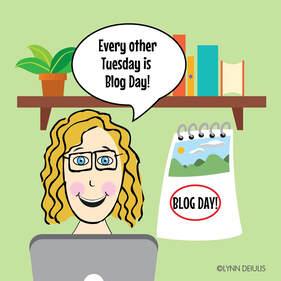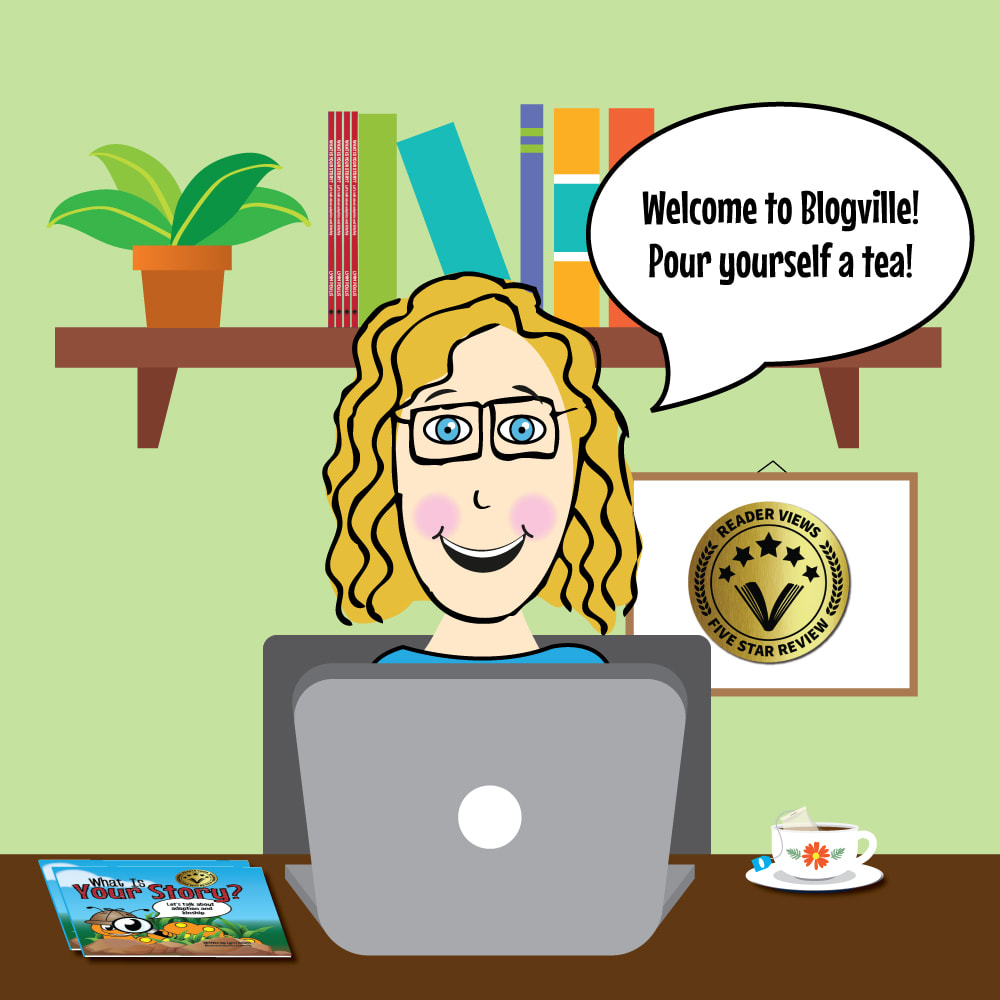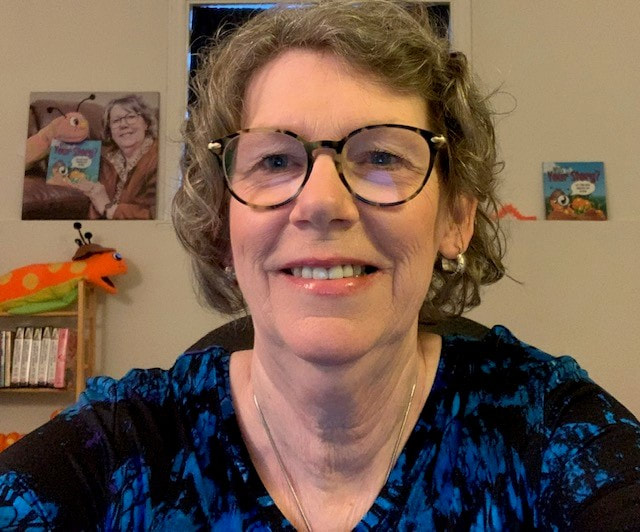|
I hope you have poured yourself a nice cup of tea today for our visit in Blogville. My tea of choice is called Turmeric Glow and I hope it will help me ‘digest’ my feelings as I write this blog.
Today’s blog is going to reach in a different direction a little bit, by way of trying to explain my professional and personal experiences with both adoption disclosure and my work with birth parents. I ask that you keep in mind that my adoption journey, both personally and professionally, mostly took place when adopted persons and birth relatives were fighting the Ontario government for the disclosure changes people impacted by adoption are benefitting from today. When I would ask questions about my birth history, my mother would often tell me maybe I would find out when I was grown up. I’m not actually sure what she meant back then given that mine was a closed adoption and adoption disclosure did not exist. I think maybe it was just a delay tactic as she, like most adoptive parents, had little or no information themselves about their adopted child’s history. I think my mother’s tactic actually impacted on my future work as a birth parent counsellor, an adoption worker, and even influenced me as an adoption disclosure worker. I think I will start there. First, I have to note that I do not typically use the term “reunion” when birth relatives are about to meet. By definition the word, ‘reunion’ implies those people have met once before and are now getting back together after a period of separation. As a result, I feel that the term reunion should be used exclusively to describe circumstances where birth relatives and a child or youth that was placed on adoption have had some type of relationship, or at least had met each other, before they sought ‘reunification’. When I met my birth father for the first time it was a meeting, after all, I don’t think I could technically have a ‘reunion’ with a man who did not even know I existed until I was an adult and a parent myself. I feel that a birth parent who spent some postpartum time with their baby before the adoption for example, will technically be reunited with that baby, (now usually an adult), making that an actual reunion. Even a birth father, who was aware of the pregnancy but stayed distant (voluntarily or otherwise) from the pregnancy and birth would technically be meeting that person for the first time, not reuniting. Other birth relatives, who never met the baby, are also meeting the person for the first time, so in my mind, even the term ‘reunion’ is a misnomer. I know it is a matter of semantics but it has always been a pet peeve of mine. Real life adoption planning is often not a “Hallmark” moment and “Hallmark” filmmakers will not buy our scripts because there really is no romancing adoption. It is often a painful and traumatic event. As a birth parent counsellor, I have been present at births where the birth mother did not wish to even see the baby once they were born, some did not want to name the baby, others just wanted to leave the hospital as soon as medically possible. I was also there with birth mothers who held, named, and visited their babies until they were placed with their adoptive parents. Some birth mothers even met the adoptive parents in a time where that was rare in public adoptions. Every single time I was present at these births, or when I thought back on them, I always wondered what my own story was. Did my birth mother see me or spend time with me following my birth? I would remind myself that I was born in a time when often the doctors or nurses would cover the baby’s face to block them from the birth mother’s view; a time where birth mothers had few options. I was born in a time where it was believed to be easier to say goodbye to your baby, if you never said hello in the first place. My mother was mistaken when she said I might find these things out when I was a grown up. Even as a grown up, all I have come to know is that I will never know what happened between me and my birth mother the day I was born, partly because it was never noted in my records, and partly because my birth mother passed away without choosing to meet me. My newborn relationship with my birth mother, if there was one, remains a mystery. In the years past, choosing not to see the baby may have been as traumatic a decision for birth mothers as looking into the face of a baby she would not be parenting. Likely due to my own experience, in my role as a birth parent counsellor, I would usually write a letter to the child about the day that they were born, things like the weather, the labour and delivery, and so forth, so that some of their future questions might be answered. I also made sure to place a copy of that letter in the file that that child would one day have the option to read. I tried to ensure that if they wanted to know these things in the future, the details would be there for them because I knew how it felt to never know. Giving birth and leaving hospital without the baby was difficult for every birth mother I worked with, whether they saw the baby or not. As a birth parent counsellor, when appropriate, I would try to bring the birth mother a small plant, one time I even brought a goldfish, for when she was discharged. I personally believe that, no matter the circumstances, when a pregnant woman attends a hospital and gives birth, psychologically she expects to leave with something alive in her arms or hands, so I tried to mitigate that trauma, even a little. When I participated in meetings between adult birth children and their birth parents and/or birth siblings in my role as an adoption disclosure worker I learned many things. Some birth parents taught me that they had dreams for a ‘better life’ for their child if they chose an adoption plan, but I also learned the pain of others who had no legal say in the matter. I learned how devastating it was when an adoption plan was made for them and not with them. Some birth parents talked about being forbidden to bring a baby home, the lack of societal support, and the pain of not having a choice. I met several birth mothers who could not remember what they named their baby or the baby’s date of birth because the experience had been so traumatic for them. Birth parents were often afraid of meeting their adult birth child, partly because they worried that the child would hate them for making an adoption decision. More often, I found they were afraid their birth child would meet them, judge them, and never want to see them again. Birth parents taught me that they were terrified of finding and then losing their birth child twice. Adult children of birth parents taught me about empathy and acceptance. Despite their parents’ fears that they would not understand, for the most part I saw how their adult children felt sad for their parents and what the adoption experience must have been like for them. Adult children felt sad that their parent once had had to choose not to, or were not allowed to, parent their baby. Accepting their newly found sibling often had an impact on their own identity, especially with regard to birth order (“but all my life I have been the oldest in our family”) or even gender roles (“but I thought I was your only baby girl”). In my experience the adult child would experience a period of grieving the loss of their birth order, or their gender role, but eventually concluding, as grief often does, with acceptance. Open adoptions have begun to and will continue to change the secrecy and lack of information in adoption for birth parents, adoptive parents, and their children. It is my hope that domestic and international adoption workers, or even prospective birth and adoptive parents may happen to read this blog and consider how important details of their birth history and their story are to any child or youth about to embark on an adoption journey. That is why I believe in answering your children’s questions honestly and to the best of your ability at a developmentally appropriate level. Otherwise, your child, like me, may be left with an empty promise of more information “When I’m Grown Up.” As ever, I welcome your comments here or less publicly by sending me an email at [email protected]
1 Comment
|
Read More
July 2024
Categories |



 RSS Feed
RSS Feed